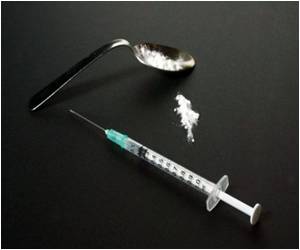In an air-conditioned cottage tucked away inside a plush south Delhi farm, an animated discussion on self-control and inner strength is under way.

Soon they would leave Delhi for their homes, but not before having spent anything like Rs.2 to 3 lakh ($3,500-5,400) for a three month work-up at the Tulasi Health Care centre that has two centres in Mehrauli and Mandi in south Delhi.
"In Bangkok, a 28-day treatment programme costs $10,000," Gorav Gupta, senior psychiatrist and the force behind Tulasi, told IANS.
This is a form of medical tourism too, but the problem of drug de-addiction is one that runs deep in India.
As per the 2006 report of the National Survey on Extent, Pattern and Trends of Drug Abuse in India, an estimated 75 million Indians are drug addicts.
In Delhi, there are about two dozen rehabilitation centres for narcotics-induced psychosis, as drug dependence patients are referred to, including both in government and private hospitals and NGO-run centres. Poor quality rehabilitation after medical treatment in the government sector has however created a huge demand for private initiatives.
Advertisement
Other private centres and hospitals, like Apollo, are also sought after and are showing the way forward.
Advertisement
"For a patient who consumes heroin or cannabis worth Rs.1,000-1,500 a day, a private hospital's rehabilitation package is not unaffordable," she said.
Elite centres like Tulasi, which also get high-end patients from Delhi as well as other states, cater to a fraction of the segment. At the other end of the spectrum are the inmates of Delhi's Tihar jail.
About 8-10 percent of Tihar's 12,000 inmates are addicts. Tihar Jail boasts of, perhaps, the city's biggest de-addiction set-up with 150 beds. At any given time about 1,000 drug-dependent inmates are being treated.
"Till the time the patient is in jail, we help him emerge out of the problem. But once his term ends, we can't control the rehabilitation process or prevent a relapse," said Sunil Gupta, the public relations officer.
The Tihar Jail de-addiction facility, which achieved an ISO 9001:2000 quality certification in 2009, is among the best in the city but not open to private people.
So the poor have to go to government hospitals.
Said a de-addiction specialist from Ram Manohar Lohia Hospital, who did not want to be named: "The poor people come to government hospitals. The rich who want to maintain secrecy about their de-addiction prefer the high-end private facilities."
Interestingly, there are very few cocaine users among narcotics-induced psychosis patients in Delhi's rehabilitation centres.
"Cocaine is a costly narcotic. People who can afford it can even afford to sustain the abuse for long," said Anuj Wadhera, a Delhi-based detoxification and rehabilitation expert.
Gorav Gupta, who also runs an OPD for poor narcotics-dependent patients from a centre in central Delhi, said that he uses medical intervention along with psychotherapy.
The treatment includes group and individual counselling - coupled with group interactions through activities like table tennis, badminton, recreation and family counselling.
"Our focus is to heal their minds and help get over social stigma and trauma," he said.
"We don't treat them as drug addicts. For us, they are like any patient suffering from a brain ailment," said Gorav Gupta.
According to a 2007 manual prepared by the drug dependence treatment centre at the All India Institute of Medical Sciences (AIIMS), a majority of heroin addicts relapse within the first year of treatment, most within the first three months.
"This is why rehabilitation is significant and private centres stand out by checking relapse," said Wadhera.
(Rahul Chhabra can be contacted at [email protected])
Source-IANS









